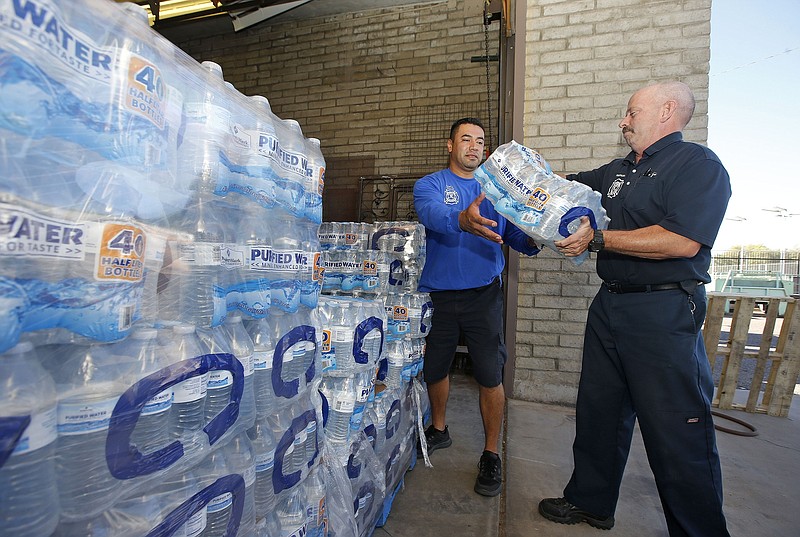Local health experts warning that the heat wave engulfing the Chattanooga metro area is a particular threat to diabetes sufferers.
"Heat increases people's metabolism, so rapid-acting insulin may be absorbed more quickly," said Deborah LaGoo, a registered nurse and certified diabetics educator with CHI Memorial's Diabetic and Nutrition Center. "People are more likely to be outdoors, and if they have increased activity, that can lead to low blood sugars."
As temperatures soar near 100 degrees this week, LaGoo recommends diabetics carry glucose tablets so they can quickly adjust their blood sugar if needed. Failure to do so can cause a diabetic to lose consciousness.
Tennessee ranks second nationally in the percentage of people suffering from Type 2 diabetes, the most common form of the disease, according to the Robert Wood Johnson Foundation. An estimated 13 percent of Tennesseans have the disease.
One reason is that many of us are overweight.
A survey published this spring by the website Wallet Hub.com ranked Chattanooga as the sixth "fattest city" in the U.S. Memphis was No. 1, Knoxville was 12th and Nashville 14th.
Diabetics who have numbness in their feet, a common complication, are at particular risk, said Dr. John Gwin, medical director for CHI Memorial's Wound Healing Center. The numbness occurs because high blood sugar levels damage the nerves in the feet.
If their feet cannot feel pain, diabetics may walk barefoot on hot sidewalks, or develop a cut, blister or wound and not recognize they are injured until the wound gets infected, Gwin said.
Even switching from normal shoes to sandals or flip-flops can cause problems, he said, because the different shoes may cause blisters. He recommends special shoes for diabetics. "They may not be the most stylish, but special diabetic shoes have inserts, and padding, and plenty of room."
But trying to avoid blisters by not exercising is the wrong thing to do, Gwin said.
"We see a lot people with these problems, where their activity gets more limited, and they get in a downward spiral," he said. Lack of exercise leads to health problems that make it even harder to exercise.
Diabetes itself can make treatment of foot problems more difficult, Gwin said.
"Infections are complex, and you often have multiple bacteria," he said. "In areas that don't have a lot of blood flow [such as parts of the foot], antibiotics don't get to them very well."
If the infection can't be treated with antibiotics, a last resort would be to amputate a toe or even an entire foot. Early treatment is key, he said. "Our rate of healing when we can get to people in time is pretty good," Gwin said. "We like our amputation rates to be less than 10 percent of our patients."
Diabetics with numbness in their feet should check their feet regularly, either by hand or by using a mirror if that is easier, he said.
The other threat to diabetics from hot weather is that insulin may be less effective.
"Storage of insulin and test strips is an issue," LaGoo said. "Heat can damage them and make them ineffective." She recommends wrapping insulin and test strips in a towel and putting them on ice or in a cooler, being careful not to place them directly on the ice.
Diabetics using an insulin pump should change their cartridges as often as once a day rather than the normal once every three days, she said, because the heat can break down the insulin in the cartridge.
LaGoo also recommended a checkup to determine if you have an early stage of diabetes. "A lot of people are going around with pre-diabetes who don't know it," she said.
Contact staff writer Steve Johnson at 423-757-6673, sjohnson@timesfreepress.com, on Twitter @stevejohnsonTFP, or on Facebook, www.facebook.com/noogahealth.
